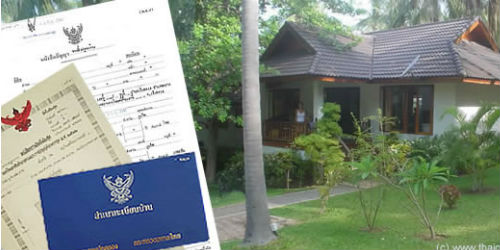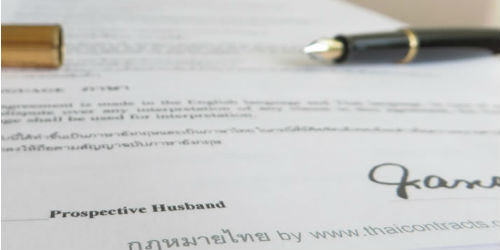Under Thai law, if you have do not have a will, or valid last will in Thailand, the law says what happens to your assets when you die, meaning it will be distributed among the statutory heirs, section 1269. The answer to your question can be found in the civil and commercial code, chapter succession and inheritance.
Below the sections about disinheritance
Section 1608. A de cujus may disinherit any of his statutory heirs only by an express declaration of intention,
- by will
- by writing deposited with the competent official.
The identity of the disinherited heir must be clearly stated.
However, when a person has distributed all his estate by will, all his statutory heirs who are not beneficiaries under the will are deemed to be disinherited.
Section 1609. A declaration of disinheritance may be revoked.
If the disinheritance has been made by will, the revocation may be made only by will; but if the disinheritance has been made in writing deposited with the competent official, such revocation may be made either from prescribed in Section 1608 (1) or (2).
In Thai
มาตรา 1608 เจ้ามรดกจะตัดทายาทโดยธรรมของตนคนใดมิให้รับ มรดกก็ได้แต่ด้วยแสดงเจตนาชัดแจ้ง
- โดยพินัยกรรม
- โดยทำเป็นหนังสือมอบไว้แก่พนักงานเจ้าหน้าที่
ตัวทายาทผู้ถูกตัดมิให้รับมรดกนั้นต้องระบุไว้ให้ชัดเจน
แต่เมื่อบุคคลใดได้ทำพินัยกรรมจำหน่ายทรัพย์มรดกเสียทั้งหมดแล้ว ให้ถือว่าบรรดาทายาทโดยธรรมผู้ที่มิได้รับประโยชน์จากพินัยกรรมเป็น ผู้ถูกตัดมิให้รับมรดก
มาตรา 1609 การแสดงเจตนาตัดมิให้รับมรดกนั้น จะถอนเสียก็ได้
ถ้าการตัดมิให้รับมรดกนั้นได้ทำโดยพินัยกรรม จะถอนเสียได้ก็แต่ โดยพินัยกรรมเท่านั้น แต่ถ้าการตัดมิให้รับมรดกได้ทำเป็นหนังสือมอบ ไว้แก่พนักงานเจ้าหน้าที่ การถอนจะทำตามแบบใดแบบหนึ่งดั่งบัญญัติ ไว้ใน มาตรา 1608 (1) หรือ (2) ก็ได้


